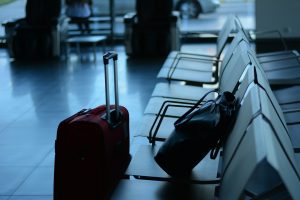It has become increasingly apparent that the Chinese Communist Party (CCP) seeks to use the cover of the COVID-19 pandemic — as well as the lack of leadership in Washington — to make an aggressive move to shift the global order to its advantage. It is doing this via belligerence, a familiar tool in Beijing’s hands. China has taken aggressive positions toward a number of Western countries, its territorial and maritime neighbors, its own citizens in Xinjiang, as well as the people of Hong Kong.
Australia has witnessed this behavior and come to a blunt conclusion: it is not safe for Australians to travel to China.
On Tuesday, the Department of Foreign Affairs and Trade (DFAT) issued a travel warning for China that stated Australians could face “arbitrary detention” if they go to the country. The department also recommended that any Australians currently in China return home as soon as possible. In issuing this travel warning Canberra is making it very clear that it simply does not trust Beijing, that it believes that the CCP is no longer a responsible international actor, and any engagement with China will now come with considerable risks.
These risks for Australians have become starkly apparent in recent years. Australian academic Yang Hengjun has been detained by Beijing for over a year on spurious espionage charges, and in June an Australian man who was arrested for drug trafficking in 2013 had his sentence randomly altered to the death penalty in an attempt to gain leverage over Canberra. As is the case with two Canadians who have been arbitrarily detained, Beijing has no qualms about using hostages as a diplomatic tool. Furthermore, it doesn’t see a system of rules that all states abide by as sufficiently advantageous to China, and it can be argued that Beijing wishes to reshape the system to one that acquiesces to the CCP’s sensitivities.
Alongside the travel warning for China, Australia looks set to follow Canada and suspend its extradition treaty with Hong Kong. With the imposition of new security laws in Hong Kong, countries like Australia and Canada can no longer trust that any person they may extradite would receive a fair trial. It is now obvious that verdicts in the city will be based on the political calculations of Beijing, rather than evidence and due process within Hong Kong’s courts.
Australia will expect retaliation from Beijing for these measures. After Canada suspended its extradition treaty with Hong Kong, China advised its citizens to exercise caution when travelling in Canada. This is a favorite tactic of the CCP, to accuse other countries of what Beijing itself is guilty of. It has elevated the juvenile phrase “I know you are, but what am I?” to a central foreign policy tool.
Just on cue, on Wednesday afternoon the Chinese Embassy in Canberra issued a rebuke to Australia’s travel warning, accusing Canberra of “disinformation.” The term was specifically chosen due to China’s recent extensive disinformation campaign against Australia. This kind of disingenuous rhetorical approach is consistent with the authoritarian nature of the CCP. As has been common within other authoritarian regimes, the goal isn’t necessarily to make people believe the deception, but make people fear those attempting it.
This exercise of raw power is how the CCP sees the world, and how it would like international norms to operate. Yet despite their discrepancies in power, Canberra understands that Beijing does not respect timidity. China has been acting in an assertive and coercive manner toward Australia, and if the country were to demonstrate any weakness this behavior would not vanish; it would intensify. The only option for Australia is to not submit to China’s tactics, and to make difficult, but necessary, decisions based on the risks that China increasingly presents.
Issuing a travel warning for China was one such decision. The practical application of this warning will be incredibly unfortunate. It will be awful that many of the 1.2 million Chinese-Australians will have to seriously consider the risks of going to visit family and friends in China. Likewise Australians with an interest in Chinese culture will have their options for first-hand experience limited without access to the People’s Republic (although it offers the opportunity to enhance people-to-people links with Taiwan). The warning will also complicate matters for Australian businesses operating in China.
Although Australia’s decision to issue a travel warning for China is an important recognition and pushback against Beijing’s behavior, it is also still a victory of sorts for Beijing. It is a demonstration of China’s ability to be able to disrupt long-held international norms not just between states, but also within basic components of people’s everyday lives. These could be people who may have no political intentions, but now must seriously fear where they tread. China’s push to make the world safe for autocratic states is achieving its central purpose in making the world more dangerous for individuals.
































